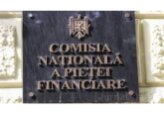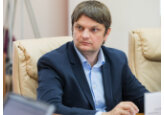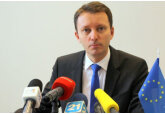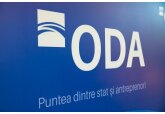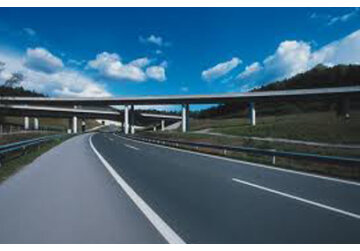
Moldova has presented an Infrastructure Reconstruction Plan for the coming years, called “5+1” in terms of the number of strategic priorities.
Minister of Infrastructure and Regional Development Andrei Spinu spoke about the document in detail at a press conference on Thursday. He expressed regret that over the past 30 years the authorities have done too little to develop infrastructure, and citizens feel this every day. “The time has come to roll up our sleeves and, in the next 2 years, build and implement projects that will radically change the face of our country. Restore and modernize roads, bridges, water pipelines, sewers, railways, seaports, airports, parks, schools, kindergartens, sidewalks, cultural centers, sports and playgrounds. Moldova will be European not only in words,” said Andrei Spinu. According to him, the presented “5+1” Infrastructure Reconstruction Plan for Moldova contains strategic priorities and projects, the implementation of which will create European living conditions for every citizen. The head of the department emphasized that priority number one is “European roads throughout the country.” He noted that all expressways, national and regional roads, i.e. almost 6,000 km of roads must be of good or very good quality. Andrei Spinu recalled that in 2022, more than 300 km of European roads were put into operation and new bridges were opened. “In the next period, we will build even more roads and bridges,” the minister emphasized, naming among these projects the construction of a section of the Soroca-Arionesti-Otaci road; bypass road in the village Novotroiţcoe; Hincesti-Lapusna roads; bypass road in Cimislia; bypass road in Vulcanesti; 2nd and 3rd sections of the Chisinau ring road, Balti-Criva road; Chisinau-Leuseni road; Hincesti-Leova-Cantemir-Cahul-Giurgiulesti road; bridges over the Prut: Cahul-Oancea, Leuseni-Albita, Sculeni-Sculeni. According to him, 500 million lei have been allocated for regional roads this year, and their construction has already begun. He called “European railway and river transport” priority number two, noting that it is necessary to increase the speed of trains across the territory of Moldova and develop the Giurgiulesti port. According to him, taking into account the unstable technical condition of the railways, in which practically no investments have been made, the speed on the railways of Moldova is below 40 km/h. The European standard is 100 km/h for freight trains and 150 km/h for passenger transport. “We want to modernize the railway in order to maximize the speed of movement in order to make Moldova more dynamic and competitive,” said Andrei Spinu. He emphasized that for this it is necessary to restore the Bender-Basarabeasca-Etulia-Giurgiulesti railway section (more than 233 km); restore the railway section from Văleni to Cahul; restore the railway sections Vălcineț -Ocnita, Ocnita-Balti, Balti-Ungheni, Ungheni-Chisinau, Chisinau-Cainari (446 km). In addition, it is planned to purchase new cars for freight transportation, especially grain, in the amount of at least 1000 cars; purchase 30 shunting locomotives; purchase equipment for the state river port; to resume navigation on the Prut and Dniester rivers by building small temporary ports that will help both farmers and businesses develop. The Minister of Infrastructure and Regional Development called “modern motor transport” priority number three. In this area, the preparation of a national program to support carriers for fleet renewal has already been completed. “People need to travel in modern, safe and comfortable transport. To do this, we need to help transport operators update their fleet. We will continue the campaign against illegal transportation of passengers, launched last year, and will simplify the use of public transport for citizens and economic agents. We will use digital tools such as: e-Ticket, e-GPS, e-routing to make the process as simple as possible for people. In 2024, we plan to test an integrated transport management system,” the minister emphasized, also highlighting plans to change the methodology for calculating the cost of passenger travel and bus station services. He called priority number four “Water for all,” emphasizing that all settlements in the country should be connected to public water supply networks. “It is important for us that all people, schools, kindergartens have access to water, and we will make this a priority. By 2030, we aim to connect all settlements to the public water supply and sewerage network,” the minister said. According to him, to achieve this goal, the authorities will complete 26 regional projects for the development of water supply and sewerage, including: completion of the project to connect the Straseni and Calarasi districts to the water supply system of the Chisinau municipality; expansion of the regional water supply system in Cahul, Vulcanesti and Riscani; construction of treatment facilities in Soroca and Comrat; connecting Ungheni, Nisporeni, Falesti and Hincesti districts to the water supply system of Romania, etc. According to him, the fifth priority is “European village - developed and comfortable settlements.” The minister recalled that the most ambitious national program to support human settlements in Moldova was launched in 2022, and since then the authorities have “already completed more than 180 projects.” “We don’t stop there. We will continue to support settlements and help them develop,” said Andrei Spinu. // 14.09.2023 — InfoMarket.



